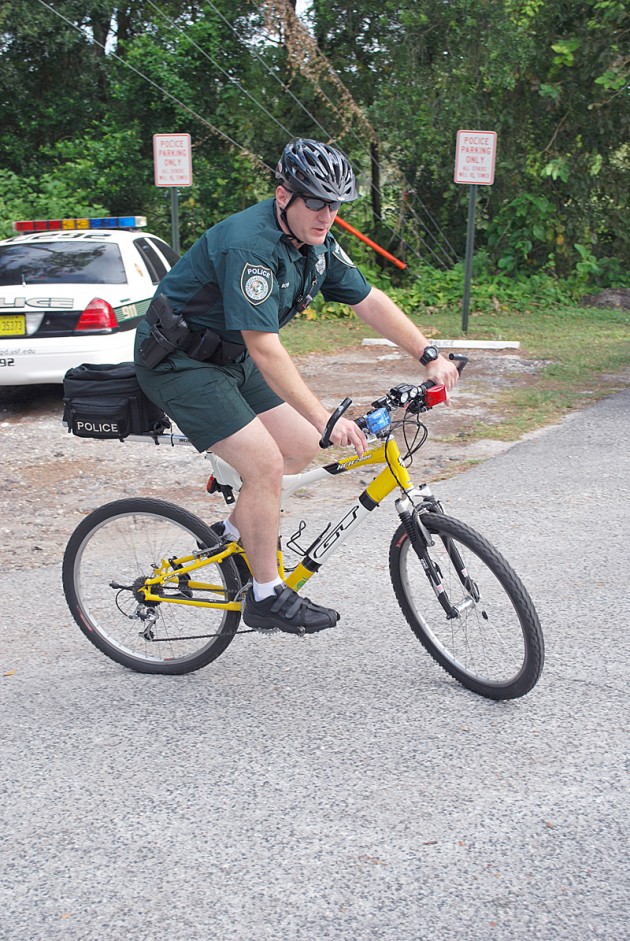Stepping up campus safety

USF is ramping up efforts to boost campus security by creating a new emergency planning department, hiring more police officers and installing an emergency notification system around campus.
The move to bolster campus safety comes eight months after USF hired private security firm AlliedBarton and formed the Division of Public Safety.
The division — which has a $5.3 million budget — oversees University Police, AlliedBarton and Parking Enforcement, as well as the newly formed Emergency Management Planning department.
The department coordinates responders during emergency situations, said Bruce Benson, division vice president.
Tom Cisco, a former emergency manager from Ohio, will run the department.
Cisco is revising the school’s emergency operation plan and installing a campus-wide warning system.
Around Thanksgiving, he said, the University is going to install sirens and loudspeakers, creating what will be called the Emergency Notification System.
The sirens and loudspeakers will notify students of emergency situations on campus, as well as provide information about hurricanes and tropical storms.
Benson said this is the first notification system of its kind at USF, and includes a strobe light for the hearing disabled.
USF plans to combine this system with other communication systems both inside and outside buildings.
Also, USF wants to create hurricane shelters for students, Benson said.
UP, AlliedBarton and Parking Enforcement have dealt with some of their communication issues and transitioned to a unified radio system. Before, each section was limited to its own internal system.
UP has also brought back bicycle patrol.
“Bike patrol gives officers more contact with students,” Benson said.
In addition, several more officers are employed this year, taking the number of officers from 39 to 43, said UP spokeswoman Lt. Meg Ross. Usually, four to six officers are on patrol at a time, she said.
USF has more than two UP officers for every 1,000 students. Ross said that USF has the highest officer to student ratio among state universities.
UF and FSU each have almost two officers per 1,000 students, but UCF has only one per 1,000.
There are also plans to build a new public service building on the north side of campus to streamline the departments within the division, Benson said.
It is still in the planning and budgeting stage, but he said he hopes construction will begin soon.
“There is fluidity within the public safety division, because many officers are trained in different areas and can help in any emergency,” he said.
Benson said USF has made security a priority.
“It’s a topic on people’s minds,” he said.
No particular event at USF prompted these changes, but issues around the nation made everyone more aware of safety.
“The Virginia Tech incident got everyone moving,” Cisco said.
The department has noticed a drop in crime statistics in the past year, Ross said, and the UP 2008-2009 Safety Guide reported that crimes on campus decreased 12 percent from 2006 to 2007.
For sophomore Anna Larson, however, security last year wasn’t very reassuring.
“Within the first couple weeks of school, my bike was stolen,” she said.
Larson bought a generic-looking bike after that, but it was stolen at the end of the year, she said. Both were taken from housing area bike racks.
UP receives numerous reports of stolen bicycles each year. Many of the bikes are stolen by people who are not affiliated with the University.
Larson said she feels more optimistic this year and hopes the new security measures will help keep her and other students safe.
“It’s good to have extra security around campus,” she said.
Student Government candidates last year also made safety upgrades and awareness a priority in their platforms.
“All the students running for office wanted security,” Benson said.
Student Body President Greg Morgan campaigned for office on the platform of campus safety and said UP has addressed his concerns.
“We’re happy that there is progress, but we’re always looking for improvement,” he said.
Despite upgrades to security, students need to make an effort to stay safe around campus, Cisco said.
“Always be aware of your surroundings,” he said. “Pay attention to warnings.”
Benson warned against walking alone at night and encouraged students to use Safe Team for transportation. Students can call 813-974-SAFE (974-7233) at night to get a golf-cart ride to and from anywhere on campus.
Also, Cisco said, students should sign up for MoBull Plus, a cell phone service that sends students and faculty text messages in the event of an emergency, at ravewireless.com/usf/index.htm.
For students unable to receive text messages, information is available on the USF Web site and on TV screens around campus.






